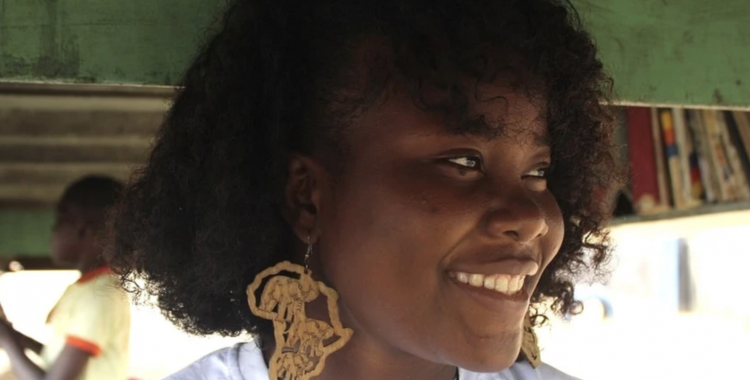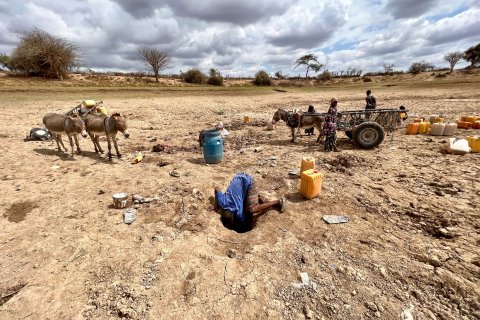Born in Cabinda 25 years ago, the second of six children, Joice Zau lived in Cuanza Sul and studied engineering in Luanda, where she currently lives.
In 2018, she started writing poetry, but it was in 2020 that she gained visibility, with the poem "Em 2022, vou like", inspired by the campaign against President João Lourenço, "JLo In 2022, you will like it".
The poem, recited in a 'poetry slam', a spoken poetry contest, broadcast on private television in Angola and later publicized on social networks, drew attention for the emotional way in which it is interpreted, but above all for the content, which, although without reference to names, is a criticism of the government and a reference to the presidential elections in August this year.
"It is unfair that the flag we once raised continues to fade the blood of our pain and evaporate our dreams", says one of the lines of the poem, which adds: "We no longer have 'pin' or 'puk'. Angola is blocked . There is no light at the end of the tunnel".
Zau recalls that it was written during the pandemic phase, which in Angola saw "several rights being violated".
"It was a phase in which there were many demonstrations, including the death of Inocêncio de Matos, who was an activist who was killed in a demonstration, and several human rights violations. Ladies were beaten. A doctor was killed for not wearing a mask", she recalled, also referring to the case of women who work in the informal market, who were prevented from selling and stayed "at home, starving, their children dying".
"It was a poem that brought a lot of visibility and also brought some problems", says Joice Zau, in an interview with Lusa.
The 'artivist' says that she learned that "this poem reached the State bodies" and 'fake news' emerged that it was being financed by Tchizé dos Santos, daughter of former president José Eduardo dos Santos.
"My family was obviously scared and they ended up scaring me too. I even had to stay locked up for two weeks without going out. My family members wouldn't let me out, I didn't have a phone, nobody could find me", she says.
Even so, Joice refuses to stop writing and declaiming her poetry, because stopping means "giving more space for these dictatorships and these oppressions to continue".
Furthermore, with the growth of the 'poetry slam' in Angola and its influence on young people from the peripheral neighborhoods, the activist feels like a reference: "If I stop doing it (...) I can no longer influence other girls and thus the revolution ends up being delayed".
For Joice, Brazilian champion of 'spoken poetry' and winner of the gender contest for Lusophone women, this 'Spoken Word' movement turns out to be "a new modality in which women can express themselves, talk about their problems, talk about violence domestic violence and sexual abuse, child violence".
Although she does not see herself as a political leader in the future, she believes that she can "encourage other girls to dare" and "to dream, for example, of being Presidents, of being ministers or governors".
The 'slams' are also "stages for institutional criticism, for political practice, for fostering peripheral talent", she argues.
"Whenever I go to a community to declaim, I always take the opportunity to discuss political and social situations, because I think that, at a time like this, it's the artist's duty", she explains.
Still on the title of the poem that gave her visibility, Joice says she hopes that, in 2022, "Angolans will enjoy a political alternation, because this has been desired for a long time".
"Unfortunately, in 46 years Angolans have not been able to taste a political or governmental alternation, so in 2022 I hope that Angolans will have the privilege of trying new models of governance", he says, acknowledging, however, that this "will be a little difficult".
"We know what the system that governs us is like. Electoral fraud must probably already be set up, because that's what always happens", she laments.
Zau believes that in recent years there has been "some progress in terms of the civic consciousness of Angolans", but he still wants to take his art further.
"The 'spoken word' is a very attractive art, an urban art, the youth can immediately identify with this artistic expression. Angola", she concludes.







